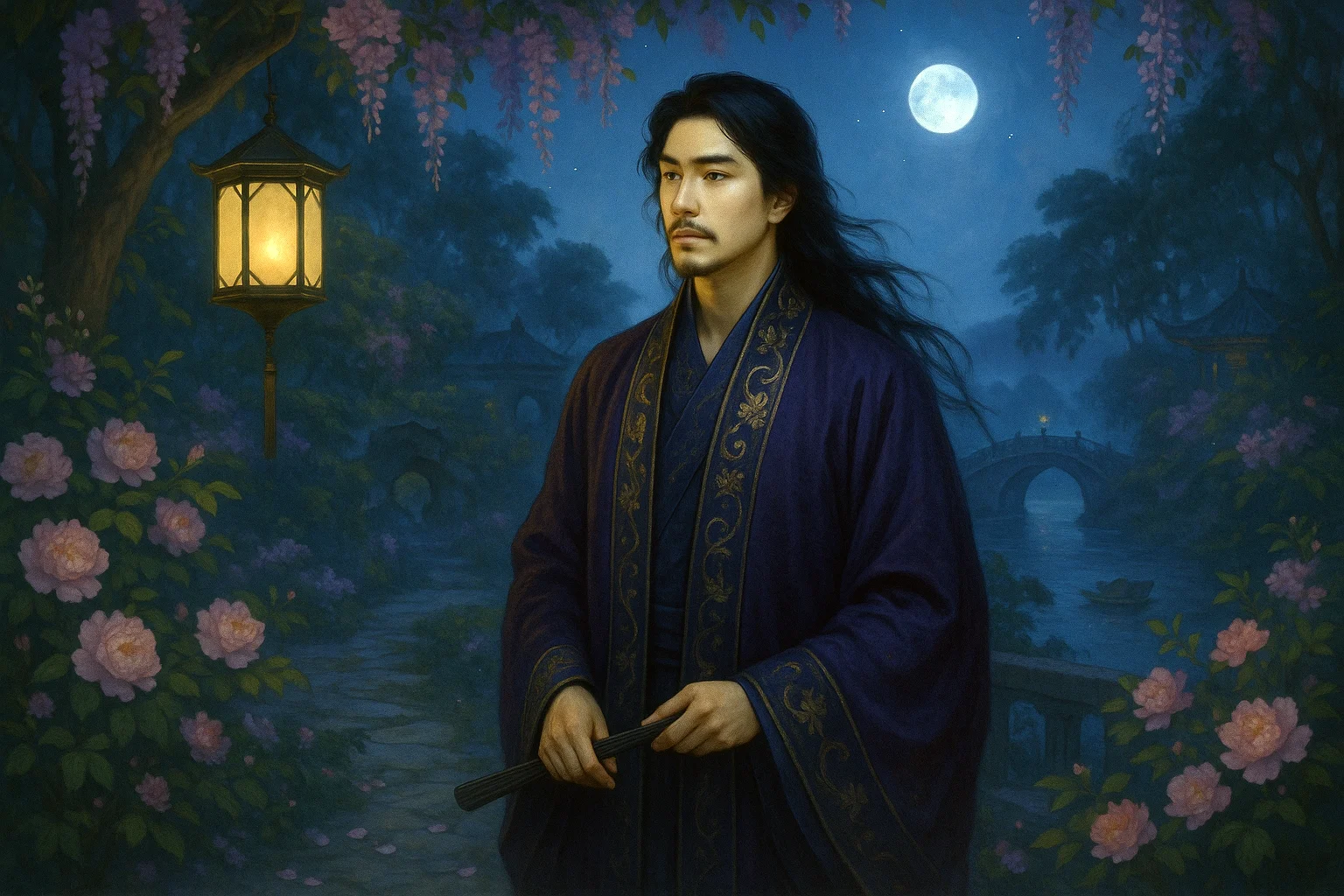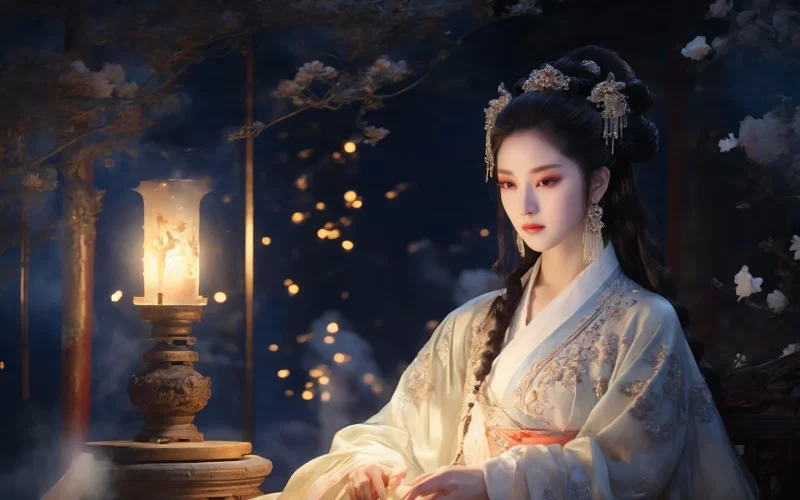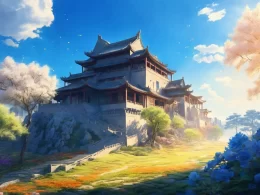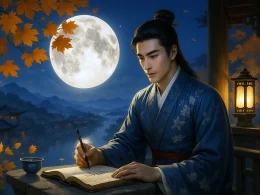When the Emperor sought guidance from wise men, from exiles,
He found no calmer w i sdom than that of young Chia
And assigned him the foremost council-seat at midnight,
Yet asked him about gods, instead of about people.
Original Poem
「贾生」
李商隐
宣室求贤访逐臣,贾生才调更无伦。
可怜夜半虚前席,不问苍生问鬼神。
Interpretation
Through the lens of history, this poem recounts the historical allusion of Emperor Wen of Han and Jia Yi, serving as the poet's scathing indictment of feudal rulers' hypocritical posturing as talent-seekers, while lamenting his own unrecognized genius. Jia Yi - that brilliant political mind of early Western Han - was exiled to Changsha due to court intrigues, and though eventually recalled, never received substantial appointment. The poet wields this historical episode to expose rulers who neglected governance for superstitious pursuits, channeling his profound disillusionment with contemporary statecraft.
First Couplet: "宣室求贤访逐臣,贾生才调更无伦。"
Xuān shì qiú xián fǎng zhú chén, Jiǎ shēng cái diào gèng wú lún.
In the Xuan Chamber, seeking talent, he summoned the exiled minister, Jia Yi's brilliance stood peerless, his gifts beyond measure.
The opening presents Emperor Wen's apparent reverence for wisdom, summoning the once-banished Jia Yi in a show of imperial magnanimity. The praise of Jia's unparalleled intellect subtly underscores the tragedy of such talent remaining underutilized, setting the stage for the poem's piercing revelation.
Second Couplet: "可怜夜半虚前席,不问苍生问鬼神。"
Kělián yèbàn xū qián xí, bù wèn cāngshēng wèn guǐshén.
Pitiful that midnight audience, his body leaning forward in vain, Not inquiring of the people's plight, but of spirits and omens.
Here the poem's blade turns - the emperor's posture of attentiveness reveals its hollow core. The contrast between governing responsibility and supernatural curiosity lays bare the performative nature of imperial "virtue," while mirroring the poet's own experience of neglected potential in a world preoccupied with superficial concerns.
Overall Appreciation
This poem employs historical allusion as a double-edged mirror. The initial portrayal of Emperor Wen's apparent reverence for talent serves as foil to the devastating revelation of his misplaced priorities. Through the lens of Jia Yi's story - the brilliant statesman relegated to discussing omens rather than governance - the poet crafts a timeless commentary on the disconnect between power and wisdom. The midnight audience scene becomes an indelible image of wasted potential, where physical proximity to brilliance contrasts painfully with intellectual distance from substantive matters of state.
Writing Characteristics
- Historical Symbolism: The Jia Yi narrative transcends its Han dynasty context to critique enduring political theatrics, where the performance of valuing wisdom often masks indifference to true statecraft.
- Precise Imagery: The single gesture of the emperor leaning forward at midnight crystallizes the central paradox - ceremonial respect undercut by fundamental misapprehension of a scholar's value.
- Structural Economy: Mere four lines accomplish a complete rhetorical arc from ceremonial observation to moral indictment, their restraint amplifying the critique's resonance.
Insights
This poem extends beyond its Tang dynasty context to illuminate universal governance failures. The "spirits and omens" represent any superficial preoccupations that distract from substantive leadership - whether in ancient courts or modern institutions. More profoundly, it questions the very nature of political virtue: true wisdom-seeking requires not just summoning talent, but engaging with its challenging insights. The poem endures as both historical critique and timeless warning about the perennial gap between power's rituals and governance's realities.
Poem translator
Kiang Kanghu
About the poet

Li Shangyin (李商隐), 813 - 858 AD, was a great poet of the late Tang Dynasty. His poems were on a par with those of Du Mu, and he was known as "Little Li Du". Li Shangyin was a native of Qinyang, Jiaozuo City, Henan Province. When he was a teenager, he lost his father at the age of nine, and was called "Zheshui East and West, half a century of wandering".











